Anti-Apartheid leaders realized that their methods required significant rebranding. This reinvention took the form of peaceful resistance, with the most vocal advocates being Demond Tutu and Nelson Mandela.
Tutu Unites Black South Africans
Apartheid not only separated blacks from whites but also separated native South Africans from each other in attempts to divide and conquer. Thus, Tutu was tasked with unifying black South Africans in a common plight, which was accomplished by promoting the notion of Black Consciousness -- the unifying awareness of a native African’s identity as black, instead of other ethnic ties.
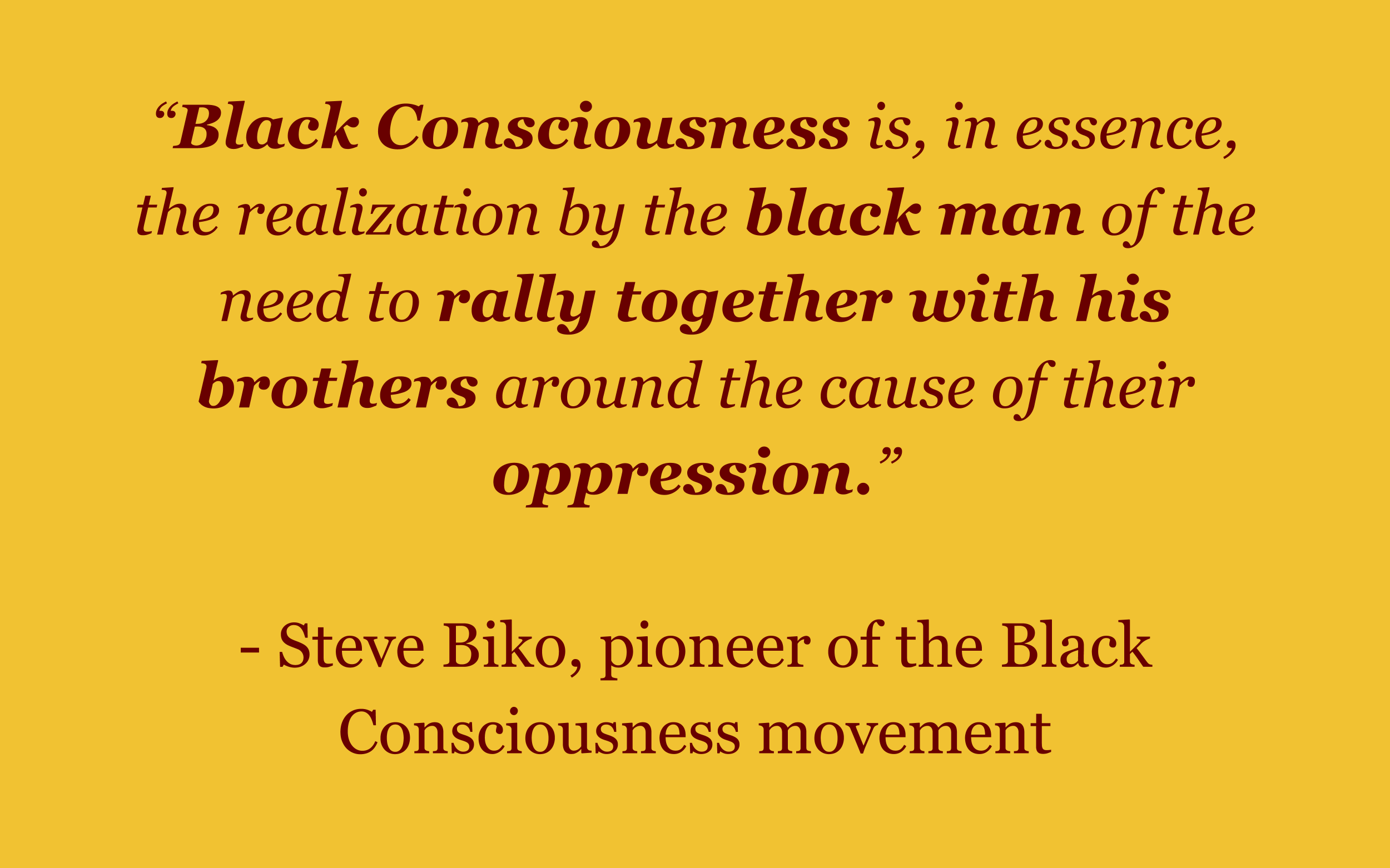

Steve Biko, 1977. Courtesy of the Conversation
Preaching Peace
In a country homogenized by religion, but separated by race, Tutu delivered his peaceful and powerful message through sermons. Tutu spread the message that one’s humanity, bestowed by God, transcended all barriers created by men.
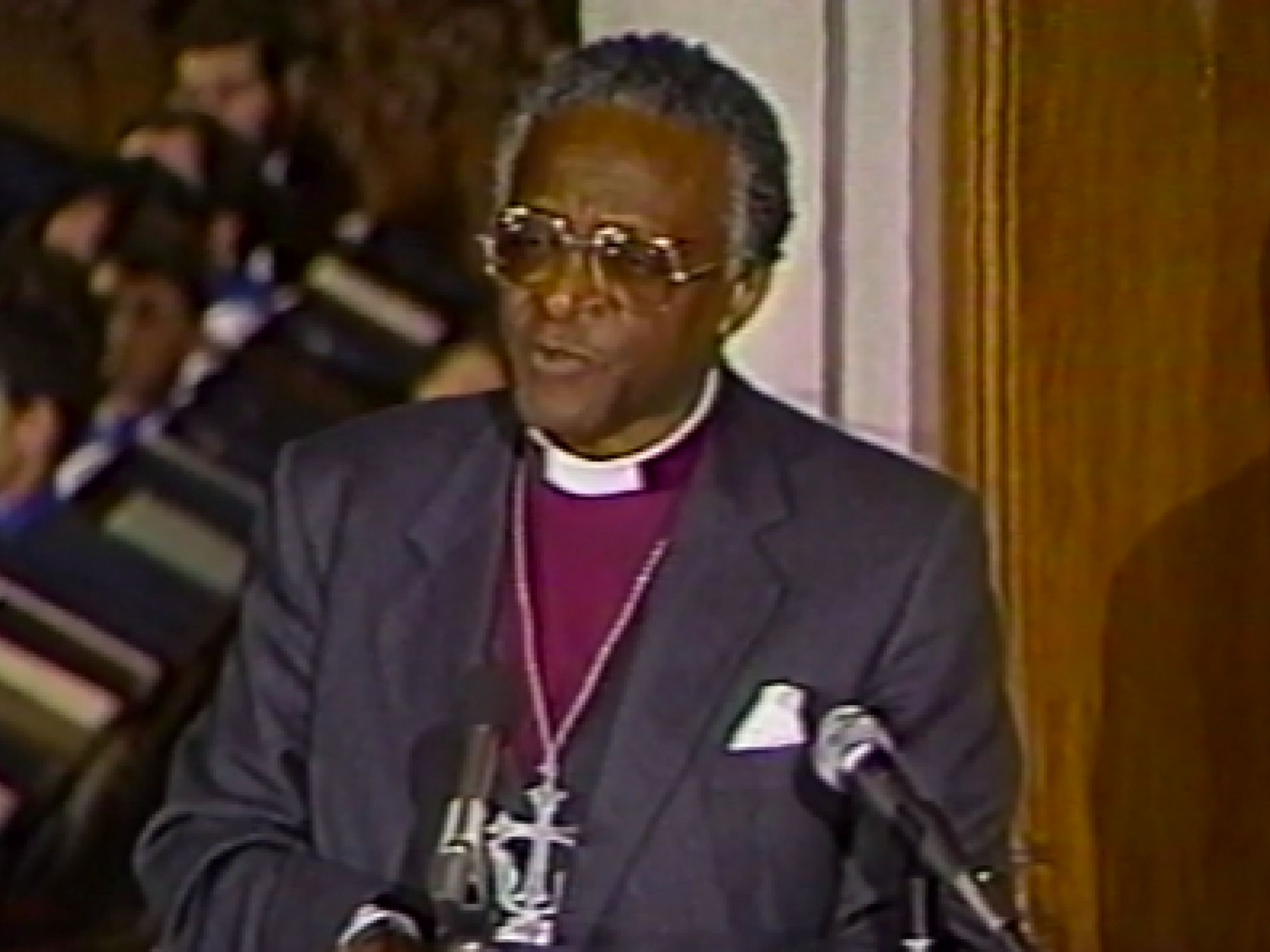
A photograph of Desmond Tutu giving a sermon in front of the Duke University community. Courtesy of Duke University Repositories
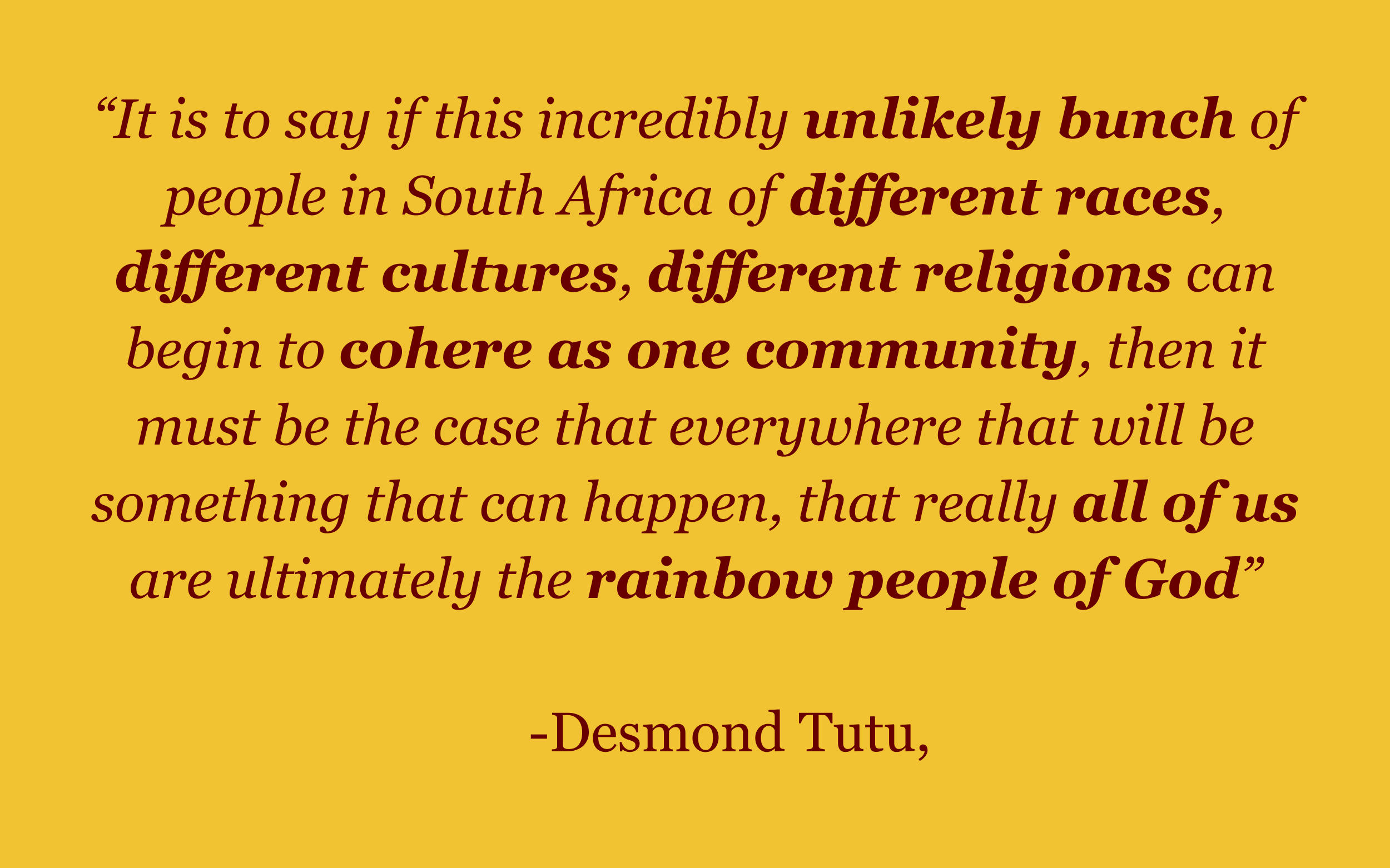
A sermon Desmond Tutu gave to the students at Duke University, reminding them that their innate humanity given by god disproves the structure of Apartheid (edited). Courtesy of Duke University Repositories
Heralding Cooperation, not Seperation
Although a radical branch of the Black Consciousness movement strongly forbade it, Tutu freely associated himself with white anti-Apartheid leaders. Tutu believed that whites needed to be educated as Apartheid also hurt white South Africans
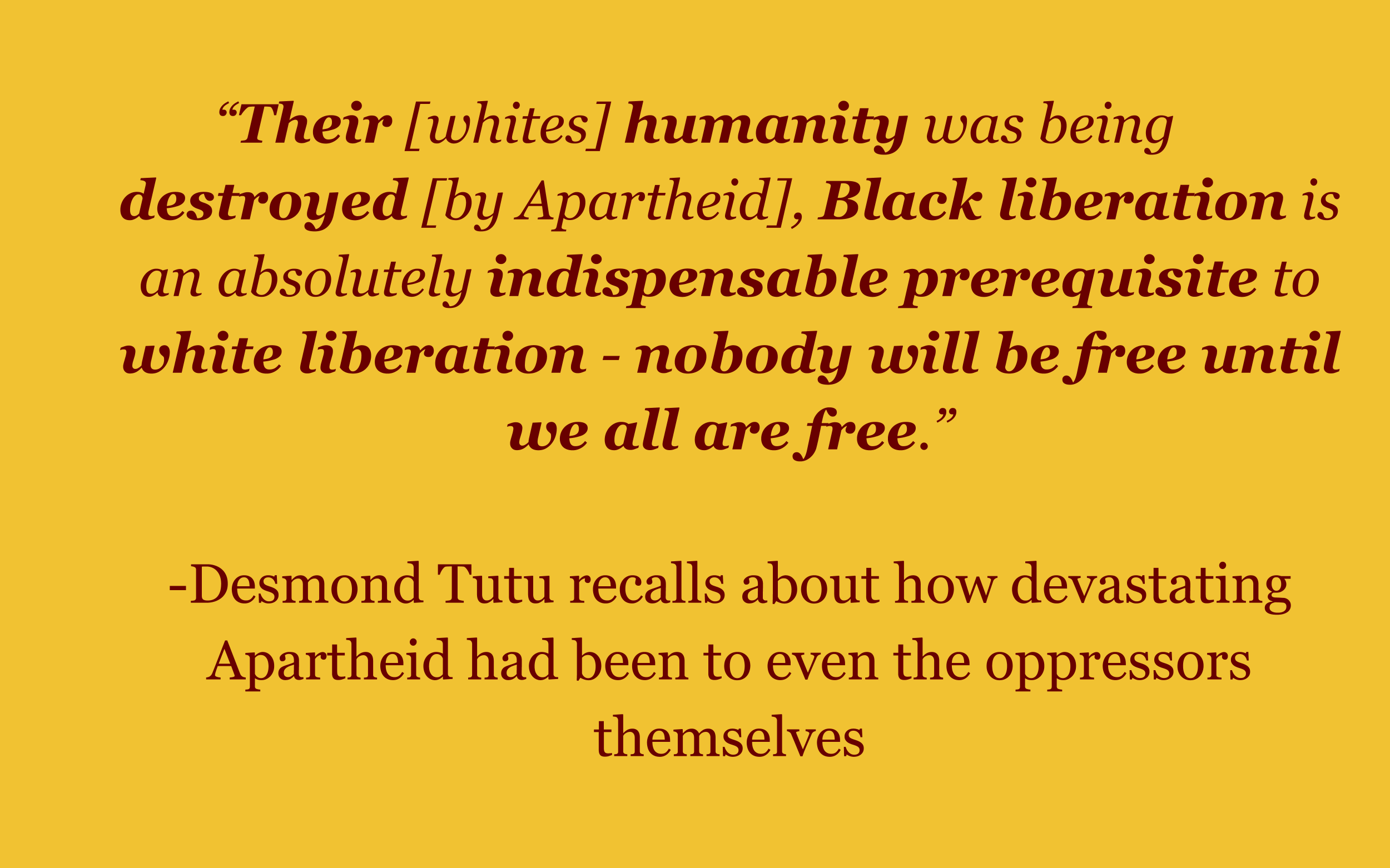
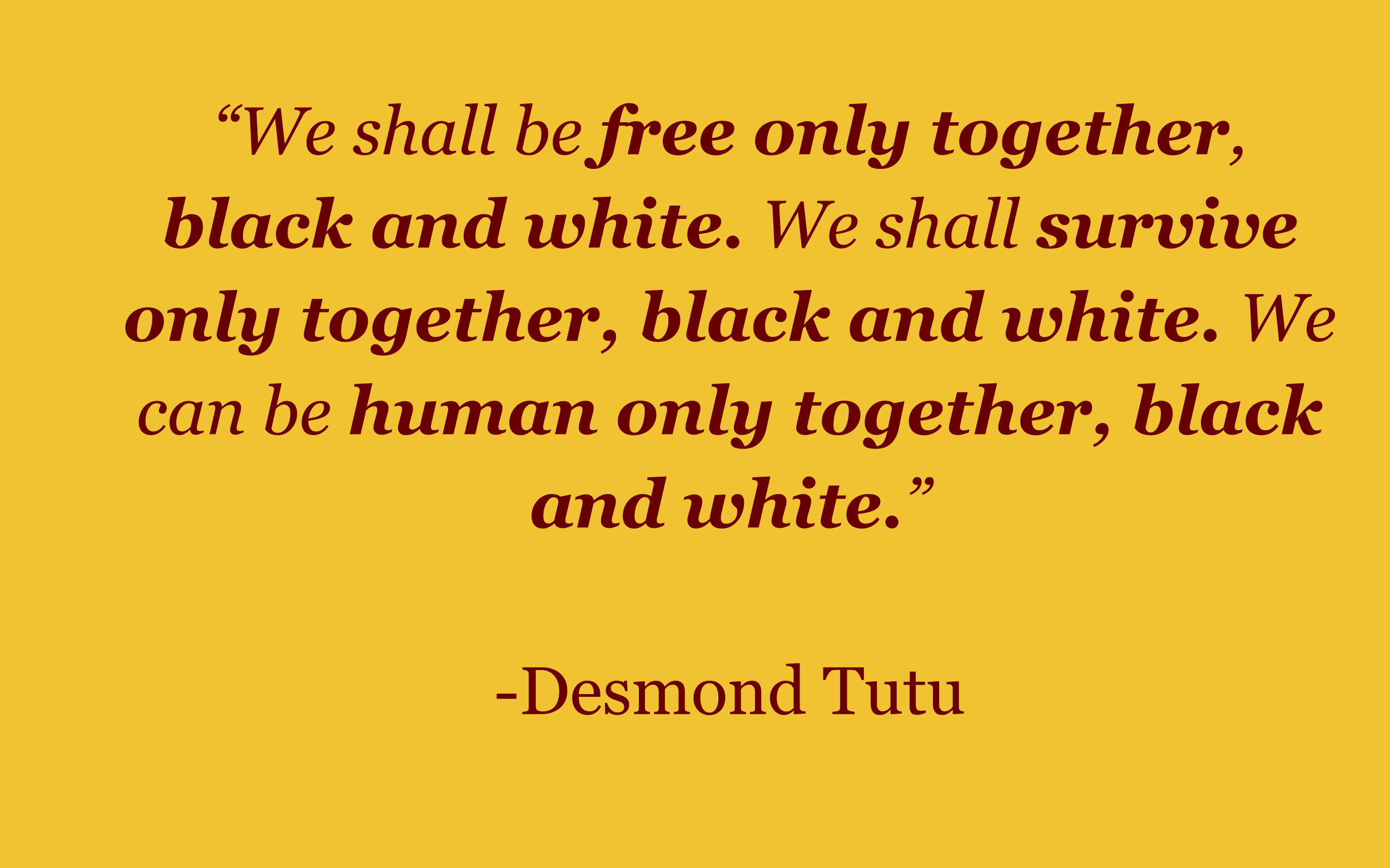
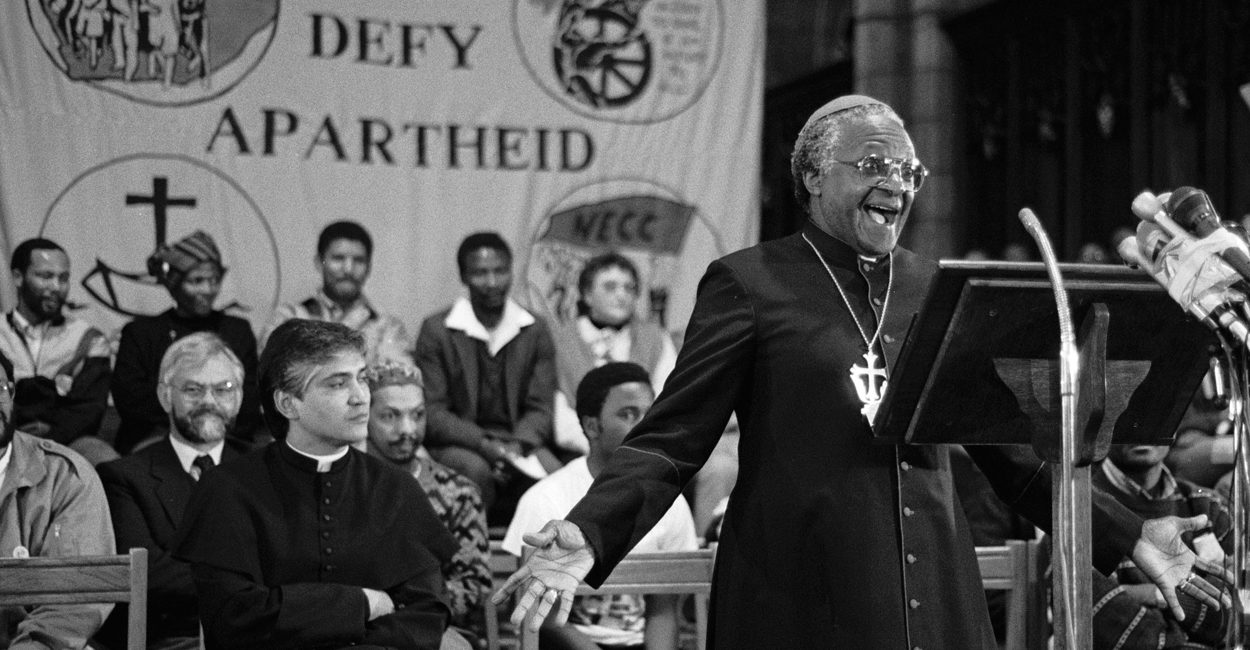
A photograph of Desmond Tutu delivering an anti-Apartheid sermon, with a team of white preachers by his side. Courtesy of The Daily Signal

